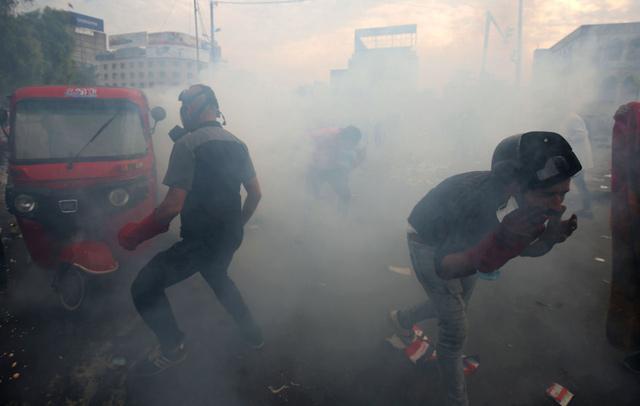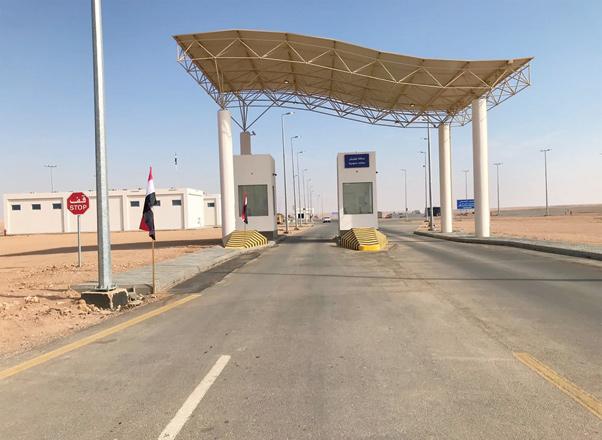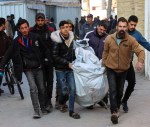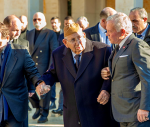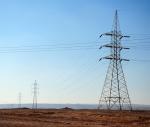You are here
Iraq reforms stymied by shadowy groups' wave of attacks
By AFP - Sep 09,2020 - Last updated at Sep 09,2020
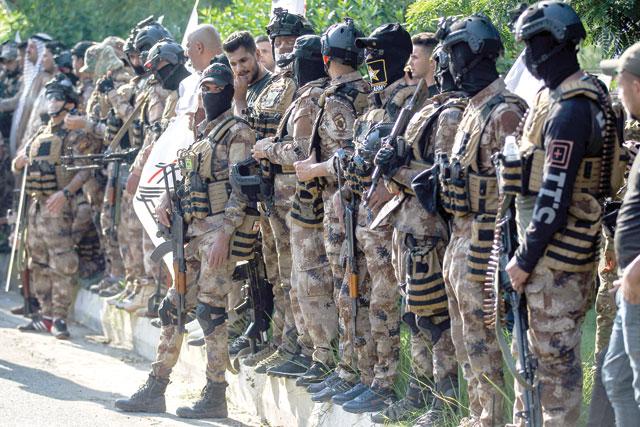
A file photo taken on October 26, 2019, shows members of the Hashed Al Shaabi, or Popular Mobilisation Forces paramilitaries standing guard during a funerary procession for Wissam Alyawi, a leading commander of the Asaib Ahl Al Haq faction that is part of the PMF, in the Iraqi capital Baghdad (AFP photo)
BAGHDAD — War-scarred Iraq hopes to launch reforms and revive its battered economy, but the drive is being derailed by a wave of violence blamed largely on shadowy pro-Iranian groups.
Since Prime Minister Mustafa Al Kadhemi took office in May, he has promised to rein in rogue militias, fight corruption and roll out long-awaited restructuring after years of war and insurgency.
But the closer his government gets to its stated aims, the more armed actors with suspected links to Washington's arch enemy Tehran are lashing out, top Iraqi officials and analysts told AFP.
"Every time these groups see us getting close to their military or economic interests, they either launch rockets or propaganda campaigns to distract us," said one senior government official.
Violence was already rising before Kadhemi travelled to Washington last month to meet US President Donald Trump, who was Wednesday expected to announce further troop withdrawals from Iraq.
But the situation has only destabilised further.
Late Tuesday, a bomb hit a supply convoy heading to an Iraqi base where US troops are deployed, killing one member of the Iraqi security forces.
On September 3, an attack targeted the Baghdad headquarters of British-American security company G4S. One intelligence official told AFP a drone had dropped an explosive charge on the building.
No faction claimed responsibility, but Tehran-backed groups had accused G4S of complicity in January's US drone strike that killed Iran's top general Qassem Soleimani in Baghdad.
Days earlier, a UN worker was wounded when an improvised explosive device detonated underneath an aid convoy in the northern city of Mosul.
A faction identifying itself as part of the "Islamic resistance" — a catch-all phrase for pro-Iran factions — took responsibility, accusing the UN of using its convoys to transport American spies.
"Your vehicles will burn in the streets of Iraq," it threatened online.
Smokescreen
A half-dozen previously unheard-of such factions have made similar threats in recent months under the "Islamic resistance" banner, but officials say they are a smokescreen.
"Five groups, including Kataeb Hizbollah, Asaib Ahl Al Haq and others, are behind the recent instability across the country," an Iraqi intelligence officer said.
These hardline groups are members of Iraq's Hashed Al Shaabi, a state-sponsored network dominated by factions close to Iran and wary of the United States.
US officials have made similar accusations, naming Kataeb Hizbollah and Asaib Ahl Al Haq as the real perpetrators of rocket attacks on American installations in Iraq.
The same groups had accused Kadhemi of plotting against Soleimani when the former was Iraq's top intelligence official and were furious when he rose to become premier.
They have understood Kadhemi's pledges to reign in armed groups as an attempt to clip their wings, officials and experts have told AFP.
Beyond escalating rocket attacks, the groups have also ramped up pressure through unconventional media outlets.
Anonymous channels on messaging application Telegram publish taunting warnings of attacks on military convoys well before they happen, deepening a sense of impunity.
The same forums have targeted Iraqi television channels critical of Iran.
Dijla TV was torched last week after the Telegram channels turned on them, and a new wave of threats have targeted Sunni-owned UTV.
The campaign began after the US government seized the website domains of Al Etejah, an Iraqi television station linked to Kataeb Hizbollah.
'Putting out fires'
The government is not looking for a direct confrontation with these groups, said Kadhemi's spokesman Ahmad Mulla.
"Instead, we are looking to dry up their funding resources by targeting border crossings," used for lucrative smuggling from Iran, Mulla told AFP.
Officials knew this could be dangerous. When the PM launched a sweeping anti-corruption campaign on Iraq's porous borders, they braced for the worst.
"They will blackmail officials, threaten their families, mobilise the tribes and maybe even commit assassinations," one senior official told AFP in July.
Indeed, two anti-government activists were gunned down weeks later in the southern port city of Basra, and tribal violence erupted north of Baghdad.
"We are constantly putting out fires, so we can't properly focus on the bigger strategy," another Iraqi official said, about Baghdad's efforts to reform the state and revitalise an economy hit by the Covid-19 pandemic and low oil prices.
A third official told AFP that Iraq's Finance Minister Ali Allawi missed his August 24 deadline to submit an economic reform plan to parliament because of the recent tumult.
Last week, Kadhemi set up an anti-corruption council, authorising the elite troops of the Counter terrorism Service to arrest officials usually considered too senior to touch.
His forces also carried out search operations in Basra and Baghdad to seize unlicensed arms, but few have turned up.
Iraqi security expert Fadel Abou Raghif said the situation was "dangerous".
"Ultimately, Kadhemi should open a real dialogue with the spiritual leaders of these groups to avoid a clash."
By Ammar Karim
Related Articles
BAGHDAD — Three Iraqi children and two women from the same family were killed on Monday when a rocket targeting Baghdad airport, where US tr
BAGHDAD — Back in October 2019, unprecedented protests demanded the fall of Iraq's ruling class.
BAGHDAD, Iraq — Iraq and Saudi Arabia on Wednesday reopened their land border for the first time in 30 years, with closer trade ties between


